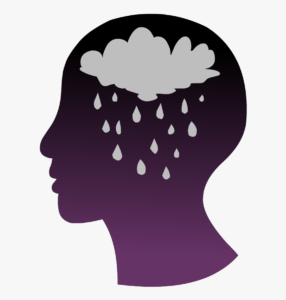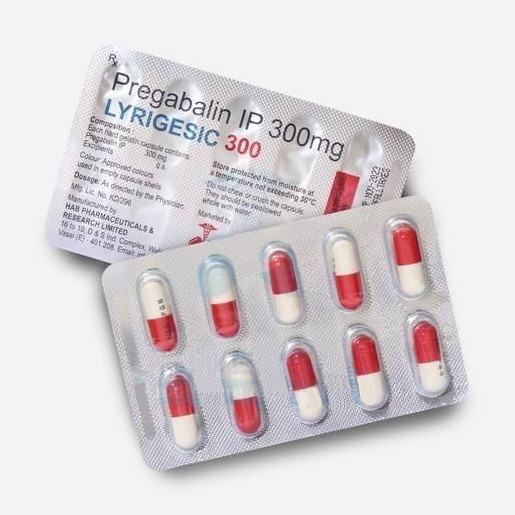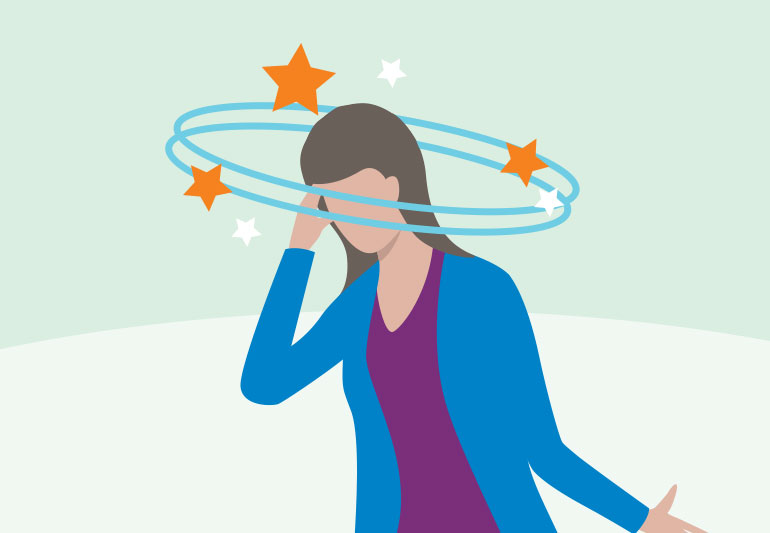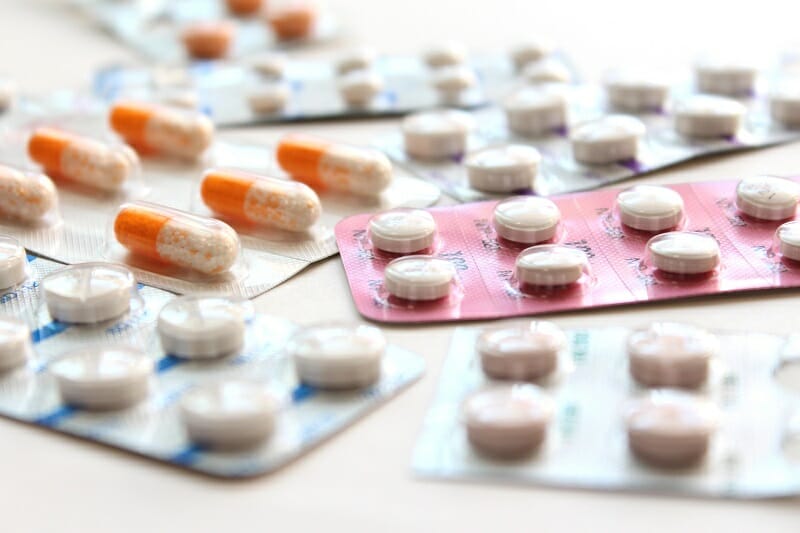Depression is a common mental disorder that can cause a wide variety of symptoms, including sadness, loss of interest in activities, decreased energy, changes in appetite and weight, difficulty sleeping, and thoughts of suicide. While there are many different treatment options available for depression, one option that has been gaining popularity in recent years is pregabalin. In this comprehensive guide, we will discuss everything you need to know about pregabalin for depression.
Contents
- 1 What Is Depression?
- 2 What Is Pregabalin?
- 3 Pregabalin For Depression
- 4 Working of Pregabalin For Depression
- 5 Dosage of Pregabalin For Depression
- 6 Benefits of Taking Pregabalin For Depression
- 7 Side Effects of Pregabalin For Depression
- 8 Tips To Keep In Mind While Taking Pregabalin for Depression
- 9 Conclusion
What Is Depression?
 Depression is a serious medical illness. It’s more than just a feeling of being sad or “blue” for a few days. Depression causes changes in how you think, feel, and behave. It can lead to physical problems, too.
Depression is a serious medical illness. It’s more than just a feeling of being sad or “blue” for a few days. Depression causes changes in how you think, feel, and behave. It can lead to physical problems, too.
Depression is different from sadness. Sadness is a normal emotion that we all experience at times. Depression is a more severe, long-lasting form of sadness. It can have a profound effect on how you feel about yourself and the world around you. Sometimes when you feel depressed, there are no words to describe how you feel.
Depression is a real illness with real symptoms. It’s not just something that you can “snap out of.” Depression doesn’t discriminate. It can affect anyone at any age, from any walk of life. When you are depressed, you may feel hopeless and helpless. You may lose interest in activities that you once enjoyed. You may have trouble concentrating, remembering details, or making decisions. Also, you may eat more or less than usual, have trouble sleeping, or feel tired all the time. Depression can even lead to thoughts of suicide.
Treatment for depression usually involves a combination of medication and therapy. Medication can help reduce the symptoms of depression and make it easier for you to participate in therapy. Therapy can help you understand and work through the negative thoughts and emotions that are associated with depression.
What Is Pregabalin?
Pregabalin is a medication that is used to treat various conditions, including epilepsy, anxiety, and nerve pain. It works by decreasing the number of neurotransmitters in the brain that are involved in pain signals. Pregabalin is sold under the brand names Lyrica and Gabapentin.
There are two main types of depression: unipolar and bipolar. Unipolar depression is characterized by a single episode of depressed mood. Bipolar disorder, on the other hand, is characterized by episodes of both mania and depression.
Pregabalin is effective in treating both unipolar and bipolar depression. In a study of patients with unipolar depression, pregabalin was found to be more effective than placebo in reducing depressive symptoms. In another study of patients with bipolar disorder, pregabalin was found to be as effective as lithium in treating depressive symptoms.
Pregabalin For Depression
Preventing relapses of depression is a complex and difficult task. There are many different types of antidepressants, each with its side effects and risks. Pregabalin (Lyrica) is an FDA-approved medication for the treatment of neuropathic pain and fibromyalgia. It is also commonly used off-label for the treatment of anxiety disorders, migraines, and hot flashes. Pregabalin has a similar structure to gabapentin (Neurontin) and shares some of the same mechanisms of action. Both medications are classified as GABA analogs and work by binding to voltage-gated calcium channels in the brain.
Pregabalin has shown efficacy in reducing depressive symptoms in several clinical trials. In a study of patients with major depressive disorder, pregabalin was found to be more effective than placebo in reducing depression scores. The most common side effects of pregabalin include dizziness, drowsiness, dry mouth, and weight gain. Pregabalin is available as an oral capsule and can be taken with or without food. It is typically started at a low dose and titrated up over time based on response and tolerability.
Working of Pregabalin For Depression
The working of pregabalin is not fully understood, however, it is thought to work by inhibiting the release of certain neurotransmitters in the brain. This action then leads to a decrease in anxiety and depression symptoms. Pregabalin has also been found to be effective in treating other conditions such as epilepsy, fibromyalgia, and neuropathic pain.
It works by reducing the release of neurotransmitters from the brain. These neurotransmitters are known to be involved in pain and anxiety. By reducing their release, pregabalin is thought to decrease both pain and anxiety symptoms.
Also, the working of pregabalin may be due to its ability to bind to a protein known as alpha(₂)δ. This protein is found in high levels in the brain and spinal cord. It is thought that by binding to this protein, pregabalin reduces the release of certain neurotransmitters, leading to a decrease in anxiety and depression symptoms.
Dosage of Pregabalin For Depression

The dosage of pregabalin will be different for different people. The doctor will start you off on a low dose and then increase it gradually over time until the optimum dosage is reached. The usual adult dose is 300 mg per day given in two or three divided doses. However, some people may need up to 600 mg per day. Pregabalin should be taken with food and should be started at a low dose and increased gradually as needed.
Pregabalin for depression is usually taken for a period of six to eight weeks. If your symptoms do not improve during this time, your doctor may recommend that you continue taking pregabalin for another six to eight weeks.
Also, people who have responded well to pregabalin and have then stopped taking it may experience a relapse of their depression. For this reason, your doctor may recommend that you take pregabalin for a long-term period.
If you are taking other medications for depression, such as antidepressants, your doctor will probably want you to stay on those medications even if you start taking pregabalin. This is because the combination of medications is often more effective than either medication alone.
Benefits of Taking Pregabalin For Depression

There are many benefits of taking pregabalin for depression. Some of these are:
Improves Mood
One of the benefits of pregabalin is that it can improve your mood. If you are suffering from depression, pregabalin can help to elevate your mood and make you feel better. Mood depends on many factors, including levels of certain chemicals in the brain. Pregabalin works by affecting these chemicals and improving mood.
Reduces Anxiety
Another benefit of pregabalin is that it can reduce anxiety. Anxiety is a common symptom of depression, and pregabalin can help to reduce anxiety levels. This can make it easier to cope with depression and make progress in recovery. Sometimes there are other benefits too, such as improved sleep and concentration.
Improves Sleep
Also, pregabalin can improve sleep. Depression can cause problems with sleep, such as difficulty falling asleep or staying asleep. Pregabalin can help to improve sleep by reducing the time it takes to fall asleep and increasing the amount of time you spend in deep sleep.
Reduces Pain
Pregabalin is also effective in reducing pain. This is because depression often causes physical pain, such as headaches and muscle aches. Pregabalin can help to reduce this pain and make it easier to cope with depression.
Makes It Easier To Cope With Depression
Pregabalin can also make it easier to cope with depression. This is because it can help to improve mood, reduce anxiety, and improve sleep. All of these things can make it easier to deal with depression and make progress in recovery.
Side Effects of Pregabalin For Depression

There are some side effects associated with taking pregabalin for depression. These include:
Dizziness
One of the most common side effects of pregabalin is dizziness. This can make it difficult to concentrate and may cause you to feel lightheaded. If you experience this side effect, it is important to drink plenty of fluids and avoid driving or operating machinery.
Drowsiness
Drowsiness is one of the most common side effects of pregabalin. It can occur when you first start taking the drug or when your dose is increased. Drowsiness can also be caused by other medications that you take with pregabalin. If drowsiness is a problem for you, talk to your doctor about whether a different medication might be better for you.
Fatigue
Fatigue is an all-encompassing feeling of tiredness and low energy. It can be physical, mental, or both. Fatigue is different from drowsiness, which is a desire to sleep. Fatigue can cause problems with memory and concentration. It may also cause irritability and a depressed mood.
Headache
Headache is another common side effect of taking pregabalin. In clinical trials, around 14 percent of people reported having headaches while taking the drug. If you experience headaches while taking pregabalin, they are usually mild and go away on their own. However, if you have severe or frequent headaches, you should talk to your doctor.
Increased appetite
Also, a lot of people who take pregabalin for depression end up gaining weight. This is because the drug can increase your appetite. In clinical trials, around 11 percent of people reported increased appetite while taking pregabalin. If you start to notice that you are eating more than usual or that you are gaining weight, talk to your doctor.
Dry mouth
Another common side effect of pregabalin is dry mouth. This can be a bothersome side effect, but it is usually not serious. In clinical trials, around seven percent of people reported having dry mouth while taking the drug. If you have a dry mouth, try to drink plenty of fluids and chew sugar-free gum or candy to help relieve the symptom.
Tips To Keep In Mind While Taking Pregabalin for Depression

These are some of the tips to keep in mind while taking pregabalin for depression:
- Make sure to take the medication exactly as prescribed by your doctor.
- Do not suddenly stop taking pregabalin, as this can cause withdrawal symptoms.
- If you experience any side effects, be sure to contact your doctor immediately.
- Be sure to keep all appointments with your doctor so that they can monitor your progress.
- Try to maintain a healthy lifestyle by eating a balanced diet and exercising regularly.
- Try exercising regularly, as this can help to improve your mood. Make sure to keep a positive outlook and focus on the good things in your life.
If you follow these tips, you should be able to safely take pregabalin for depression and hopefully see some improvement in your symptoms. Remember that every person responds differently to medication, so it may take some trial and error to find the right treatment for you.
Conclusion
Pregabalin is an effective treatment for depression. However, it is important to remember that it is not a cure-all and should be used in conjunction with other treatments, such as therapy and medication. If you are considering using pregabalin for depression, be sure to speak with your doctor first to ensure that it is the right treatment for you.
Also, be sure to follow all instructions on the medication label and never take more than prescribed. Doing so could result in serious side effects or even overdose. If you have any questions about pregabalin or depression, be sure to ask your doctor.
For more information, please contact MantraCare. Depression is a mental illness characterized by persistent feelings of sadness, hopelessness, and loss of interest in daily activities. If you have any queries regarding Online Depression Counseling experienced therapists at MantraCare can help: Book a trial Depression Therapy session


